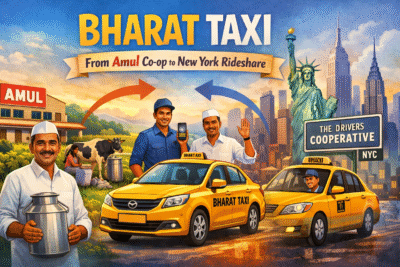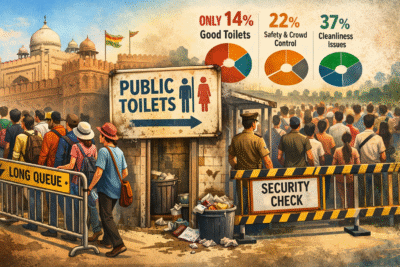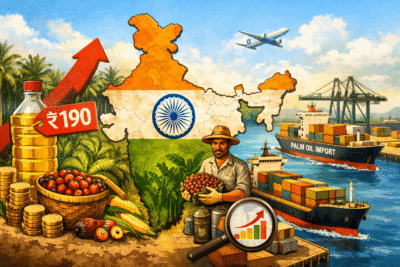
The Centre announced on March 11 the implementation of the CAA by notifying its rules, four years after its passage. The rules facilitate the granting of Indian citizenship to persecuted non-Muslim migrants, including Hindus, Sikhs, Jains, Buddhists, Parsis, and Christians, from the aforementioned three countries.
Political Context
The timing of the notification has drawn criticism from opposition parties, who accuse the BJP of using the law to polarise voters ahead of elections, particularly in states like West Bengal and Assam.
Public Reaction
While the government and some communities have welcomed the notification, others, including political leaders and civil society groups, have strongly opposed it, citing concerns about communal division and discrimination.
Assam’s Concerns
In Assam, some fear legitimising undocumented Bangladeshi Hindus could further complicate the state’s demographic and political landscape, leading to heightened tensions and protests.
Election Impact
The notification of CAA rules could have significant ramifications on the upcoming Lok Sabha elections, with political parties and leaders taking strong stances either in support or opposition to the law.
Continued Debate
The notification of rules reignites the debate surrounding the CAA, highlighting deep-rooted divisions and conflicting viewpoints within Indian society regarding citizenship and communal identity.
Granting Indian Nationality
- The Modi government will now grant Indian nationality to persecuted non-Muslim migrants, including Hindus, Sikhs, Jains, Buddhists, Parsis, and Christians, from the three aforementioned countries.
- The rules came into force immediately after their unveiling, as per a Gazette notification.
Prime Minister’s Commitment
Union Home Minister Amit Shah stated that Prime Minister Narendra Modi has fulfilled another commitment by implementing the CAA.
Clarification on Misconceptions
Official sources clarified that the CAA aims to grant citizenship and will not revoke the citizenship of any Indian, irrespective of their religion. The law targets individuals who have faced persecution for years and have sought refuge in India.
Political and Social Responses
- While the BJP hailed the implementation as historic and humanitarian, opposition parties, including Congress, criticised it, alleging polarisation ahead of the Lok Sabha elections, particularly in West Bengal and Assam.
- Kerala Chief Minister Pinaray Vijayan asserted that the CAA is divisive and declared it will not be implemented in Kerala.
- Delhi Chief Minister Arvind Kejriwal condemned the move, labelling it as BJP’s attempt to secure votes by exploiting poor people from neighbouring countries.
- West Bengal Chief Minister Mamata Banerjee vowed to oppose the CAA if it curtails citizenship rights or discriminates against any group.
Community Reactions
- The Matua community in West Bengal celebrated the implementation, considering it their “Second Independence Day,” as it holds significance for their population and political influence in the state.
- Pakistani Hindu refugees welcomed the decision, expressing joy at the prospect of finally attaining Indian citizenship.
Protests and Opposition
Several organisations and political entities, including AASU and 30 indigenous groups in Assam, expressed opposition through protests and announced a statewide hartal against the CAA. Opposition parties and indigenous communities continue to reject the CAA, emphasising their commitment to peaceful resistance and legal action against it.
The Backstory
CAA Notification
The rules for implementing the Citizenship (Amendment) Act 2019 were notified, allowing citizenship for undocumented non-Muslim migrants from Pakistan, Bangladesh, and Afghanistan who arrived in India before December 31, 2014.
Opposition to CAA
Opposition parties and civil society organisations have consistently opposed the CAA, citing concerns of discrimination and communal divisions.
Past Protests
The CAA sparked nationwide protests in December 2019, resulting in significant loss of life and widespread criticism of the law’s provisions.
Delay in Implementation
Despite being passed in December 2019 and receiving presidential assent, the law’s implementation was delayed due to the absence of notified rules.
Opposition Allegations
Congress Criticism
Congress general secretary Jairam Ramesh criticized the timing of the notification, alleging it was a move to polarise elections, especially in West Bengal and Assam. He emphasised that it took over four years for the Modi government to finalise the rules.
Kerala’s Stand
Kerala Chief Minister Pinarayi Vijayan condemned the law, asserting it creates communal divisions. He declared that Kerala will vehemently oppose it.
CPI(M) Perspective
The CPI(M) labelled the law a violation of the constitution, emphasising that granting citizenship based on religion is unacceptable and challenges humanity.
Mamata Banerjee’s Opposition
West Bengal Chief Minister Mamata Banerjee expressed her opposition, questioning the timing of the announcement, particularly just before the Lok Sabha polls.
Kejriwal’s Accusation
Delhi Chief Minister Arvind Kejriwal accused the BJP of playing “dirty politics” by implementing the law ahead of elections to garner votes.
Akhilesh Yadav’s Critique
Samajwadi Party chief Akhilesh Yadav termed the move a distraction tactic by the BJP.
Mayawati’s Suggestion
BSP chief Mayawati suggested that doubts and confusion surrounding the law should be cleared before implementation.
Owaisi’s View
AIMIM president Asaduddin Owaisi denounced the law as divisive and based on discriminatory principles.
BJP’s Response
BJP leaders hailed the decision as historic, emphasising it fulfils the promise made to persecuted minorities in neighbouring countries.
Union Minister Smriti Irani and BJP chief spokesperson Anil Baluni praised the government’s commitment to protecting persecuted minorities.
Uttar Pradesh Chief Minister Yogi Adityanath welcomed the move, thanking Prime Minister Narendra Modi and Home Minister Amit Shah.
Matua Community’s Reaction
The Matua community celebrated the notification, considering it akin to a second independence day, expressing gratitude towards PM Modi.
Assam Protests
Raijor Dal president Akhil Gogoi criticised the move, warning of protests against legitimising Bangladeshi Hindus in Assam. AASU and indigenous organisations in Assam announced plans to burn copies of the CAA.



